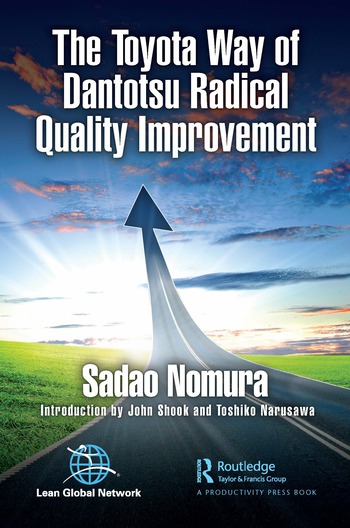Every day humans eat very nearly the same number of meals and sleep in the same number of houses and travel the same number of miles to work. All of these numbers increase slowly with population growth, but the number of us on the planet and our needs don’t change rapidly.
So how can we have dramatic short-term gyrations in an economy whose business is to supply what a relatively constant number of us need? I think of these gyrations as another form of mura, the term used by lean thinkers to describe short-term variations in demand not caused by a change in the long-term desires of the consumer. I call them the “big mura” in contrast to the “little mura” seen in most value streams every day when lagging information flows, big batches, and process instability cause “bull whip” effects all the way up each stream.
Years ago Dan Jones and I wrote in Lean Thinking that leaning the world’s value streams to level demand from a pacemaker point and to produce goods in small batches with much less inventory would damp not only the little mura but the big mura as well. And there is some evidence that this has happened. The total amount of inventories needed to support a given amount of sales to end customers has been falling and the recession of 2001 was milder than many expected it to be. But we still have gyrations in the economy and as I write it appears that we are heading into another, beginning in North America.
Economists and policy makers have long accepted that these gyrations are human creations and that attempts should be made to level demand through fiscal policy, financial system regulation, and transparency — other forms of heijunka. But until humankind gains more knowledge about how to do this – and more wisdom as well to damp the booms that soon become the busts – economic gyrations will continue and lean thinkers can’t prevent them.
What we can do is to prevent the lean movement from being damaged by this recession. It is predictable that as the economy slides and companies get into deeper trouble, company executives and “lean” consultants will soon emerge with plans to get “lean and mean”. Headcounts will be rapidly reduced as sales fall with the claim that value streams are being re-engineered to require less human effort. But what will actually be happening in most cases is that companies will simply be creating less value with proportionally fewer people. Then, when the recession is over and orders surge, they will rehire employees to behave just as they did previously. (Or they will convert former employees to contractors, with lower wages and fewer benefits.) There is nothing lean about any of this.
What we have always tried to do in the lean movement is to create more value for society while protecting the employees creating the value from short-term variations in demand. Unfortunately, in the present circumstance a few organizations will need to reduce their number of employees significantly simply to survive. And “some jobs” is always a better outcome than “no jobs”. But their managers should call this what it is: a reduction in employment that permits them to do less with less. That is, less value creation with proportionally fewer employees in a slumping market. They should never call it “lean” because it isn’t.
Most organizations will face a different choice in this recession. They can either treat their employees as an expense to be pruned quickly to protect earnings in the short term. Or they can treat their employees as an asset to be protected for their ability to create value in the long term. And lean managers will do the latter. They will view their employees — with their accumulated knowledge of how to solve problems in order to continually reduce muda, mura, and muri — as their organization’s core advantage for success in the future even if there is cost to the organization in the short term.
I wish I could count on all managers to behave like lean managers. But I can’t. Over the past twenty years many of us have worked very hard to introduce a new way of thinking about value creation and how to treat fairly the people creating the value. It would be a tragedy if the big mura of this moment discredits lean ideas and alienates employees from a way of thinking that can create a win-win-win for companies, employees, and customers in the long term.
I am therefore hoping that members of the lean community will speak out loudly whenever they see activities being labeled as lean that are only mean. And I would love to hear about positive examples of organizations with lean management that are taking the long view by finding ways to protect employees in the current downturn while laying the ground work for success in the next upturn. Indeed, these stories would make an excellent subject for a future e-letter.
With best wishes,
Jim
James Womack
Founder and Chairman
Lean Enterprise Institute






